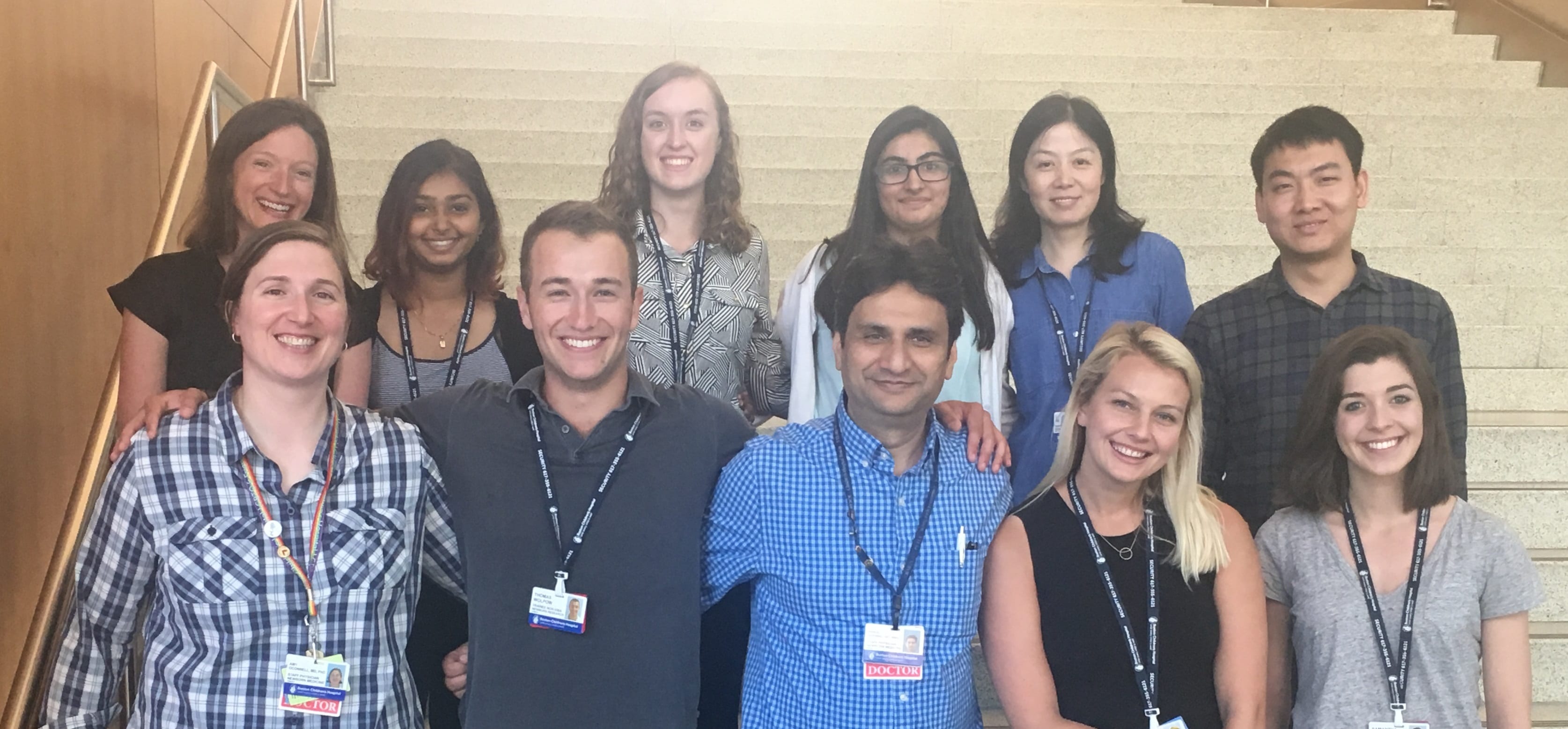Posted by: Sara Cullinan, PhD, Deputy Editor, AJHG
Each month, the editors of The American Journal of Human Genetics interview an author of a recently published paper. This month we check in with Amy O’Connell, first author of ‘Neonatal-Onset Chronic Diarrhea Caused by Homozygous Nonsense WNT2B Mutations.’

AJHG: What prompted you to start working on this project?
Amy: My work in Dr. Agrawal’s genetics lab focuses on confirming the functional consequences of novel mutations identified by whole exome sequencing. We identified individuals from two families who harbor homozygous nonsense WNT2B mutations and display similar severe congenital diarrhea phenotypes, suggesting this is an important gene for gut physiology. It seemed important to try and get to the bottom of it, especially since what we observed differed from what mouse studies concluded, where knocking out Wnt2b revealed no gut phenotype.
AJHG: What about this paper/project most excites you?
Amy: I am an immunologist by training, so I am excited about the potential connections between inflammatory triggers and Wnt2b. Our paper begins to explore this relationship by showing that TLR4 expression is altered in the absence of Wnt2b, but I think there is more to this story and I’m continuing to work on it.
AJHG: Thinking about the bigger picture, what implications do you see from this work for the larger human genetics community?
Amy: To me, this project underscores the importance of personalized medicine and genomics approaches. Wnts are a very important family of molecules, and WNT2B is highly expressed in the intestine, but until now it has been somewhat neglected, viewed as being non-essential, and thought to be fully redundant with other Wnt pathway molecules. That patients with loss of Wnt2b are so severely affected clearly suggests otherwise. Taking what we’ve learned from three patients will have implications for our entire understanding of the regulation of intestinal stem cells, a good reminder that translational science works in both directions.
AJHG: What advice do you have for trainees/young scientists?
Amy: First of all, be wary of free advice. It’s not usually about the advisee. Given that, one of the best lessons I’ve learned is that it is okay to change your plans if you find that what excites you in science is not what you started off trying to do or become.
AJHG: And for fun, tell us something about your life outside of the lab.
Amy: I have a 2-year old and two miniature schnauzers, so I get to do a lot of playing when I’m not at work. Yesterday I got to be a ballerina, ride to the “pizza store” on a “horse”, and build a doggy castle. It’s terrific exercise for the imagination!
Amy O’Connell, MD, PhD is a Neonatologist at Boston Children’s Hospital, and an instructor at Harvard Medical School. She has been an ASHG member since 2018. You can find her on Twitter at @PostCallScience.
